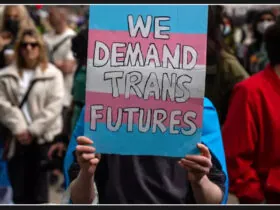Alabama has a long and profit-driven history of contracting prisoners out to private companies. The state’s labor system, which has been in place for over 150 years, including the convict leasing era, has paved the way for the commercialization of mass incarceration.
Over the past five years alone, more than 500 businesses, including Best Western, Bama Budweiser, and Burger King, have leased incarcerated workers from one of the most violent, overcrowded, and unruly prison systems in the U.S., according to The Associated Press. This finding is part of a comprehensive two-year investigation into prison labor. The utilization of this inexpensive and dependable labor force has resulted in over $250 million in revenue for the state since 2000, collected from prisoners’ wages.
Over the past five years, more than 500 prisoners have been employed at various local restaurants including Wendy’s, McDonald’s, Burger King, and Applebee’s.
Where are the jobs and what do they pay?
This Article Includes
In Alabama, the majority of jobs for inmates are conducted within prison facilities. It is worth noting that these inmates, who are largely African American, are often assigned to perform arduous tasks without receiving any compensation. However, an investigation by the Associated Press (AP) revealed that over the past five years, more than 10,000 inmates in the state have collectively worked 17 million hours outside of prison, undertaking various tasks for entities such as local governments, businesses, and well-known companies like Walmart. These tasks range from labor-intensive activities like mopping floors and doing laundry to working in car-part manufacturing, meat-processing plants, and distribution centers.
Employees in private companies may have the opportunity to earn some income, but they also risk facing consequences if they refuse to comply. These consequences range from being denied visits from their families to being sent to high-security prisons. The conditions in these prisons are so hazardous that the federal government has filed a lawsuit, which is still pending after four years, citing the treatment of prisoners as unconstitutional.
In a state where the parole rate hit an all-time low last year, with only 8% of eligible prisoners being granted early release, turning down work opportunities can put inmates at risk of losing their chances for parole. However, this year, the number of parole grants more than doubled after a public outcry.
Arthur Ptomey, a former employee at different private companies for the last six years, shared his experience of being denied parole in 2022. He lost his job at KFC and had expressed his dissatisfaction with the low wages. Despite working as a full-time cook for over a year, he was disheartened to see that even teenage workers at the register were earning more than him.
Ptomey, along with nine other current and former prisoners, took legal action last year by filing a class-action federal lawsuit. Their lawsuit targeted state officials, local governments, and businesses including franchises of McDonald’s and Wendy’s. The plaintiffs argued that these entities contribute to a system of forced labor that resembles a “modern-day form of slavery.” This system, they claim, prevents highly skilled workers from being released.
At present, he is employed at Progressive Finishes, a leading contractor of prison labor in the state. According to their website, the company has acted as a third-party supplier to renowned automotive companies such as Honda, General Motors, Ford, Toyota, Nissan, Kia, Volvo, Chrysler, and Hyundai.
Hyundai acknowledged that some of its suppliers have hired inmates for jobs, but the company emphasized that it does not play a role in the decision-making process regarding the employment of inmates. Similarly, Honda stated that it has no knowledge of any business partnership with Progressive Finishes, as it is common for companies to work with third-party suppliers without direct involvement or awareness of specific relationships.
What is oversight like for the prisoners?
Among the civilian population, there are men and women who have records for violent crimes such as murder and assault. It is worth noting that many of them are serving 15 years or longer.
Alabama prisoners frequently work outside of their facilities without any correctional supervision. In certain instances, there is a complete lack of oversight, resulting in escapes that are commonly known as “walkaways.”
According to Kelly Betts from the corrections department, the work programs are deemed essential for the successful reintegration of inmates into society. She acknowledged that even individuals sentenced to life without the possibility of parole are eligible for work release jobs.
According to Betts, the evaluation of each inmate’s situation is done based on their individual record.
When asked for comment, the majority of companies chose not to respond. However, the companies that did reply stated their strict policies against the use of forced labor and prison labor, and expressed their commitment to conducting thorough investigations on the matter.
In a statement, McDonald’s emphasized its stance against the use of prison labor in its supply chain and corporate-owned restaurants. The company is dedicated to promoting ethical employment practices and expects its franchisees to adhere to the same principles. While franchisees operate independently, they are encouraged to develop policies that prioritize human rights.
How much money does this involve?
Over the course of its investigation, the AP examined two decades’ worth of monthly statistical reports from the Alabama corrections department. Through this analysis, it was determined that the state has generated over $250 million since 2000. This significant amount was obtained through contracts with private companies and deductions from prisoners’ earnings.
Reporters have carefully analyzed data from over 83,000 pages that were obtained through a public records request. The data includes the names of inmates who participated in Alabama’s work programs. It has been discovered that in the last five years, prisoners have been employed by public entities, such as landfills and even the governor’s mansion, as well as by at least 500 private companies. To provide further context, this information was cross-referenced with an online state database that provides details about the specific crimes committed by these individuals, their sentences, the duration of their imprisonment, their race, and their good-time credits earned and revoked.
What do prisoner advocates say?
Outside jobs should not be abolished, according to many prisoner advocates. In Alabama, these shifts provide a much-needed break from the rampant violence within the state’s institutions. Shockingly, the death rate of Alabama inmates behind bars was nearly one per day last year and in the first half of 2024, which is five times higher than the national average.
Advocates argue that incarcerated workers should receive fair wages, have the option to work without fear of punishment, and be afforded the same workplace rights and protections as any other American.
Nationwide, prisoners lack the ability to organize, protest, or strike for improved conditions. Moreover, they are usually not considered as employees, whether they work within correctional facilities or for external businesses under prison contracts or work release programs. Additionally, unless they can demonstrate “willful negligence,” it is exceedingly difficult for incarcerated workers to file successful lawsuits in cases of injury or death.
Read More:







Leave a Reply